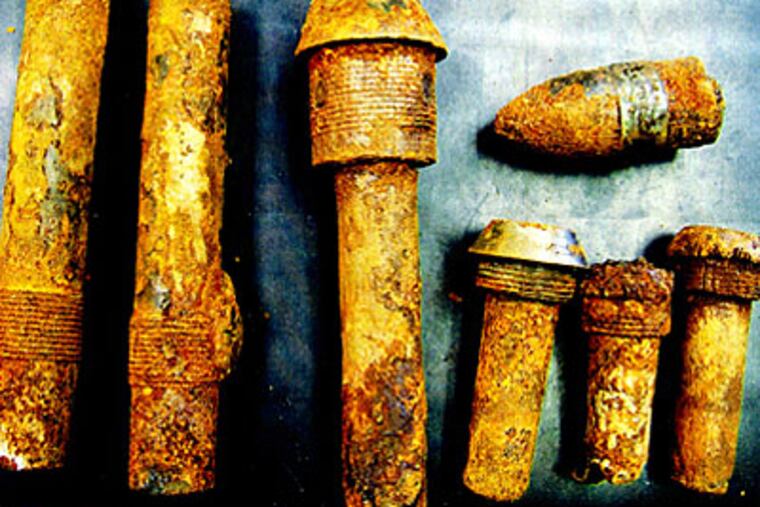More WWI munitions found on Jersey beach
Vistors might want to be careful planting that beach umbrella at the southern end of Surf City this summer.

Vistors might want to be careful planting that beach umbrella at the southern end of Surf City this summer.
Thirteen World War I-era artillery components - boosters and fuses that resemble rusty pipes - were found and removed from the Long Beach Island shoreline after last week's nor'easter, said Army Corps of Engineers spokesman Khaalid Walls.
The beach is open - it hasn't closed since more than 1,100 munitions were cleared by last Memorial Day weekend - and people can sunbathe and swim in a section with a lifeguard.
Digging and metal detectors are banned, though.
These munitions aren't like bombs or land mines that are designed to be easily triggered, Walls said.
"They have explosive materials inside them but they aren't independently ignited, like a bomb. They're components," he said.
"The potential exists for the items to explode, but we haven't had any incident," he said.
Still, beachgoers probably shouldn't jam that beach umbrella deeper than a foot, Walls said.
The metal-detector ban is to discourage people from hunting for souvenirs.
"We don't want people digging them up and putting them on eBay," Walls said.
Anyone who finds a suspicious object in the area should move away and caution others to do the same, then inform a lifeguard or call 911, Walls said.
The munitions, apparently dumped at sea by the U.S. Navy after World War I, wound up onshore after tons of sand were pumped to replenish the beach last year.
The section affected, about a mile long, extends into part of neighboring Ship Bottom as well.
The Army Corps will keep monitoring the situation.
"We're keeping a munitions expert at the beach all summer who's going to be doing daily scans, just to see if anything washes up from the surf," Walls said.